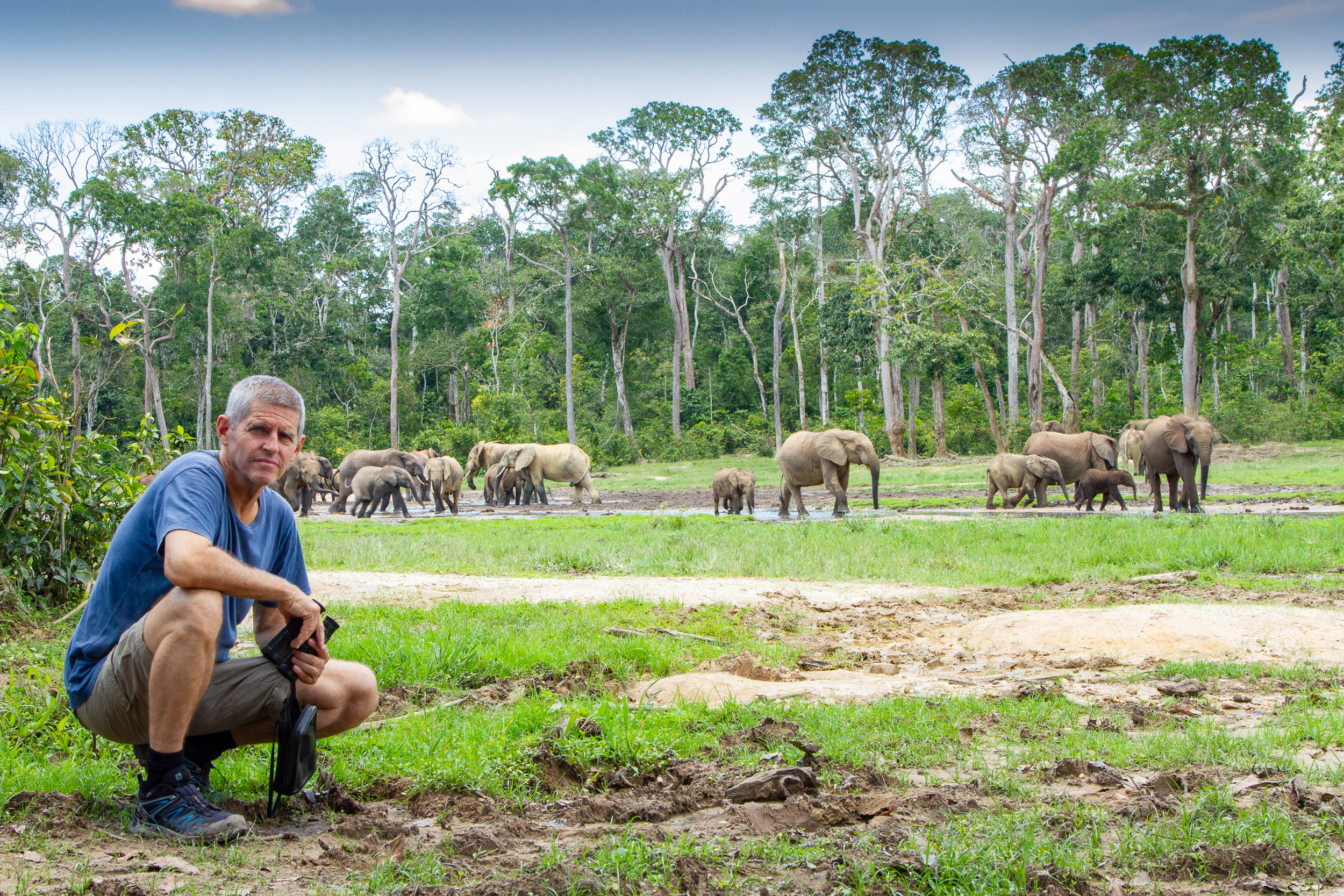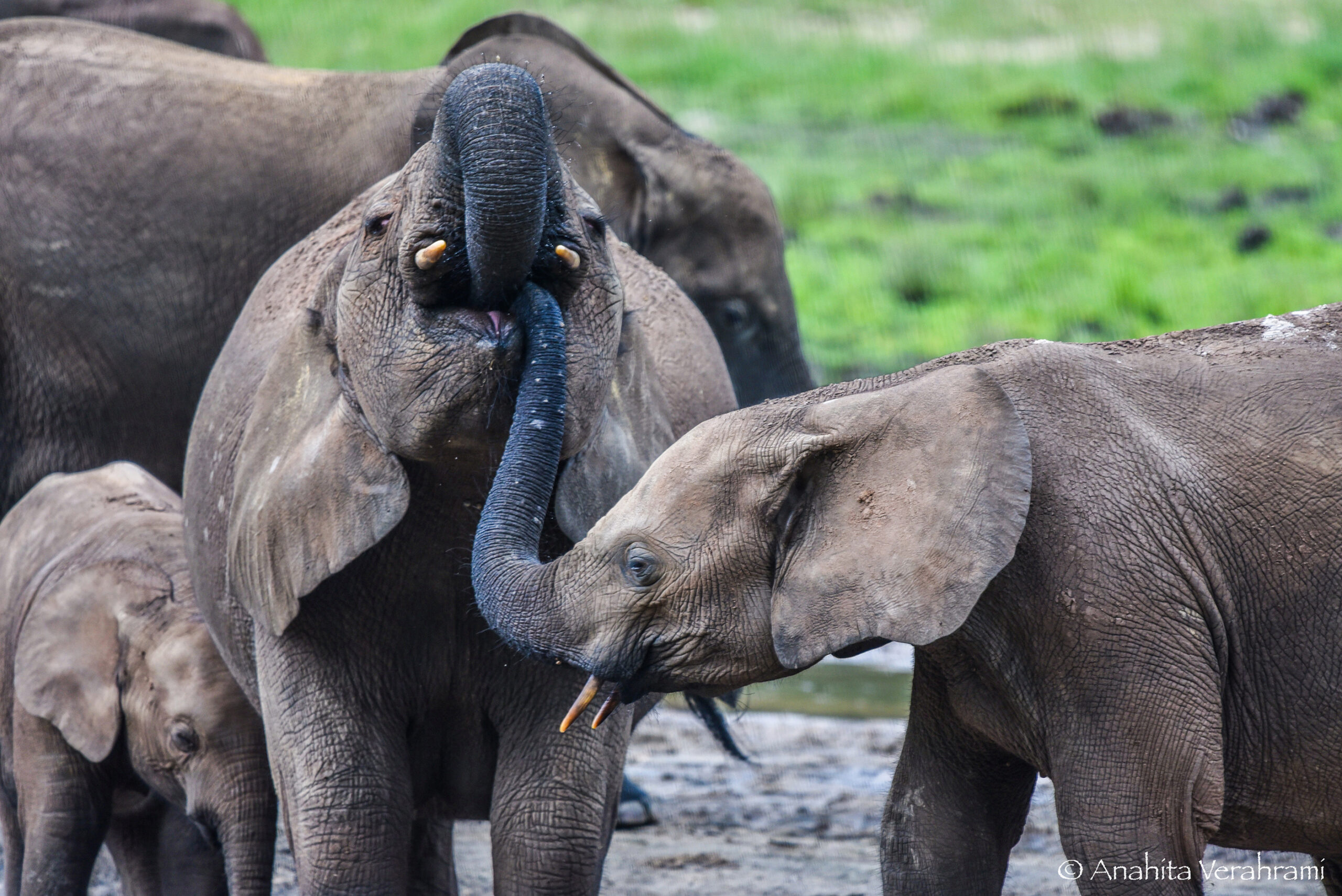
Dzanga-Sangha: Deciphering the Secret Language of Forest Elephants
Stephanie Probst, Ivonne Kienast, Thomas Breuer
In the forests of Central Africa, researchers are working on an impressive archive of almost a million hours of sound. They monitor endangered forest elephants acoustically and aim to learn to understand their language. Forest elephants lead a life in secret. In the dense vegetation of their habitats, they are difficult to spot. Nevertheless, they have been the victims of poaching in large numbers for decades.
This is because their tusks are harder than those of other elephant species, which makes the ivory easier to work with. In addition, the opaque thickets of their forests also provide cover for poachers. However, both the elephants and their adversaries are rarely seen in the dense forest, but both can be heard.
Sound recordings
Research teams from the Elephant Listening Project have installed acoustic recording devices in the Dzanga-Sangha protected area complex, covering almost 1,200 square kilometers. The devices record the sounds of elephants and gunshots from poachers. The recording devices of the Elephant Listening Project systematically record rainforest sounds to determine elephants’ location and preferred areas – in order to be able to better protect them. Changes in their vocalization behaviour, for example in the presence of poachers, can also be recorded with the help of bioacoustic research.
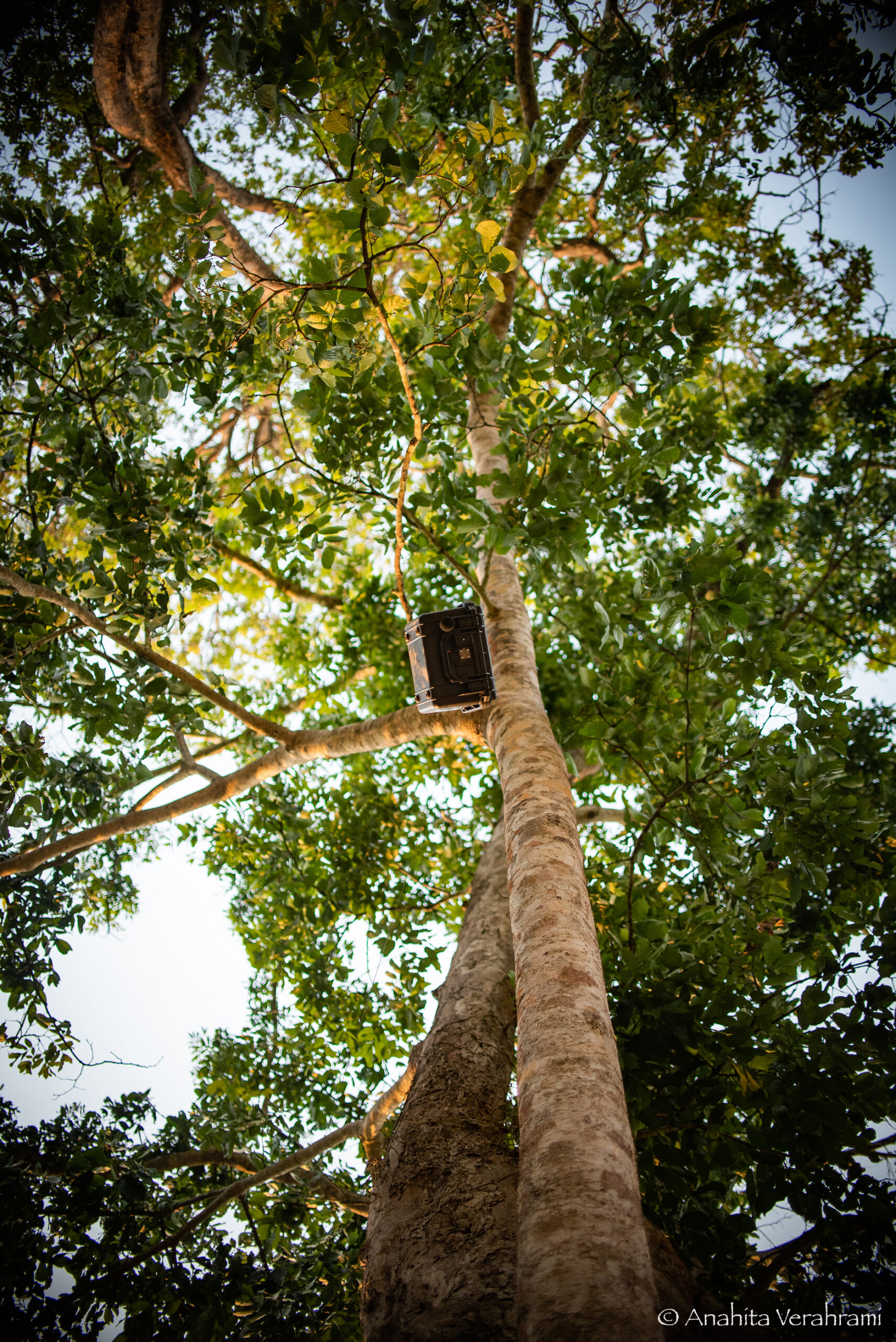
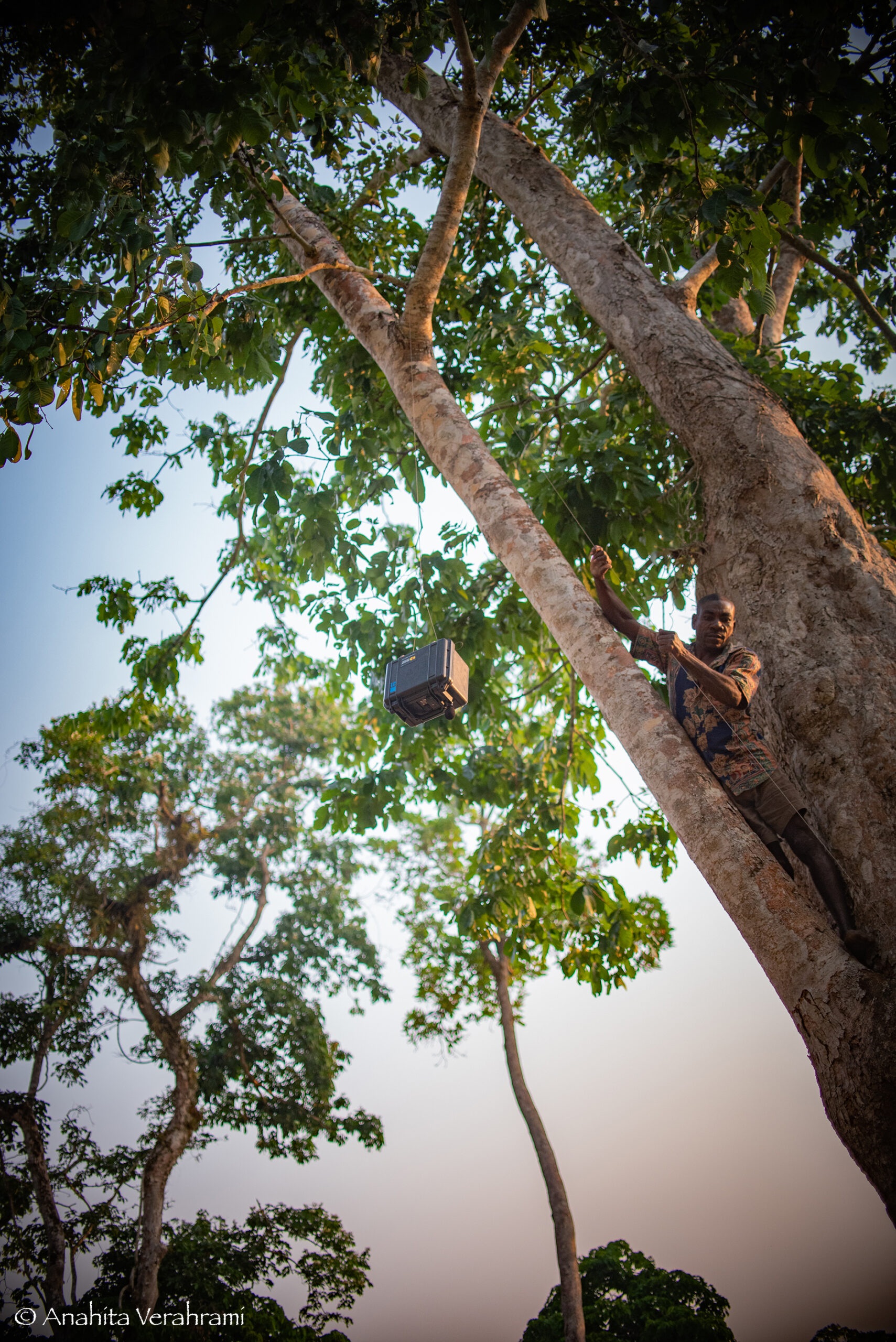
Acoustic tracking
The scientists report their data at regular intervals to the protected area administration in Dzanga-Sangha. Of almost greater interest than the findings on elephants are the findings on poaching: recorded shots and other man-made noises are systematically evaluated in order to better predict illegal hunting in the future and to better plan anti-poaching patrols.

Who is behind
Elephant Listening means something like “listening to the elephants”. The Elephant Listening Project is a research project of the K. Lisa Yang Center for Bioacoustics in Conservation at Cornell University Ithaca. The WWF is an important partner of the project, has been active in Dzanga-Sangha for a very long time and works together with the researchers on site.
What did he say?
The research team in Dzanga-Sangha not only monitors the elephants, they also want to understand them better. At the Dzanga Bai, a large, natural forest clearing, they observe their behaviour, associate it with the various elephant sounds and create a kind of dictionary: a database where the sounds are assigned to categories. The elephant language is extremely complex and science is still in its infancy. For a long time, it was not even known that elephants communicate most of the time with sounds that we humans cannot hear.
Discovery: Elephant language
For the most part, elephants communicate via sounds close to the infrasound range, which are below the human hearing limit. Bioacoustic researcher Katy Payne, founder of the Elephant Listening Project, discovered this in a zoo in 1984. Standing in front of the elephant enclosure, she perceived vibrations that she could not explain. Today, the researchers in Dzanga-Sangha make the infrasound sounds visible in the form of so-called spectrograms. A spectrogram is the pictorial representation of frequencies. If you take a closer look at them, it becomes clear how complex this communication is.
Elephants are highly social
The forest elephants use their low-frequency calls not only to communicate with their group over longer distances, but also to shape their interactions in many different contexts. Elephants are very social, highly intelligent creatures with strong family ties. Understanding and demonstrating this is another goal of the project.

Learning to understand
Those who understand elephant language can better judge and prove how much elephants are affected by, for example,deforestation or oil drilling . Knowing where and when the forest elephants prefer to be can protect them from poaching. The Elephant Listening Project is not only active in Dzanga-Sangha, but also in other national parks. Far too little is known about these sensitive pachyderms, and their hidden way of life makes it difficult to research them. But we need the forest elephants on our planet. They ensure healthy rainforests, distribute plant seeds on their migrations and even promote better carbon storage through their feeding behaviour.
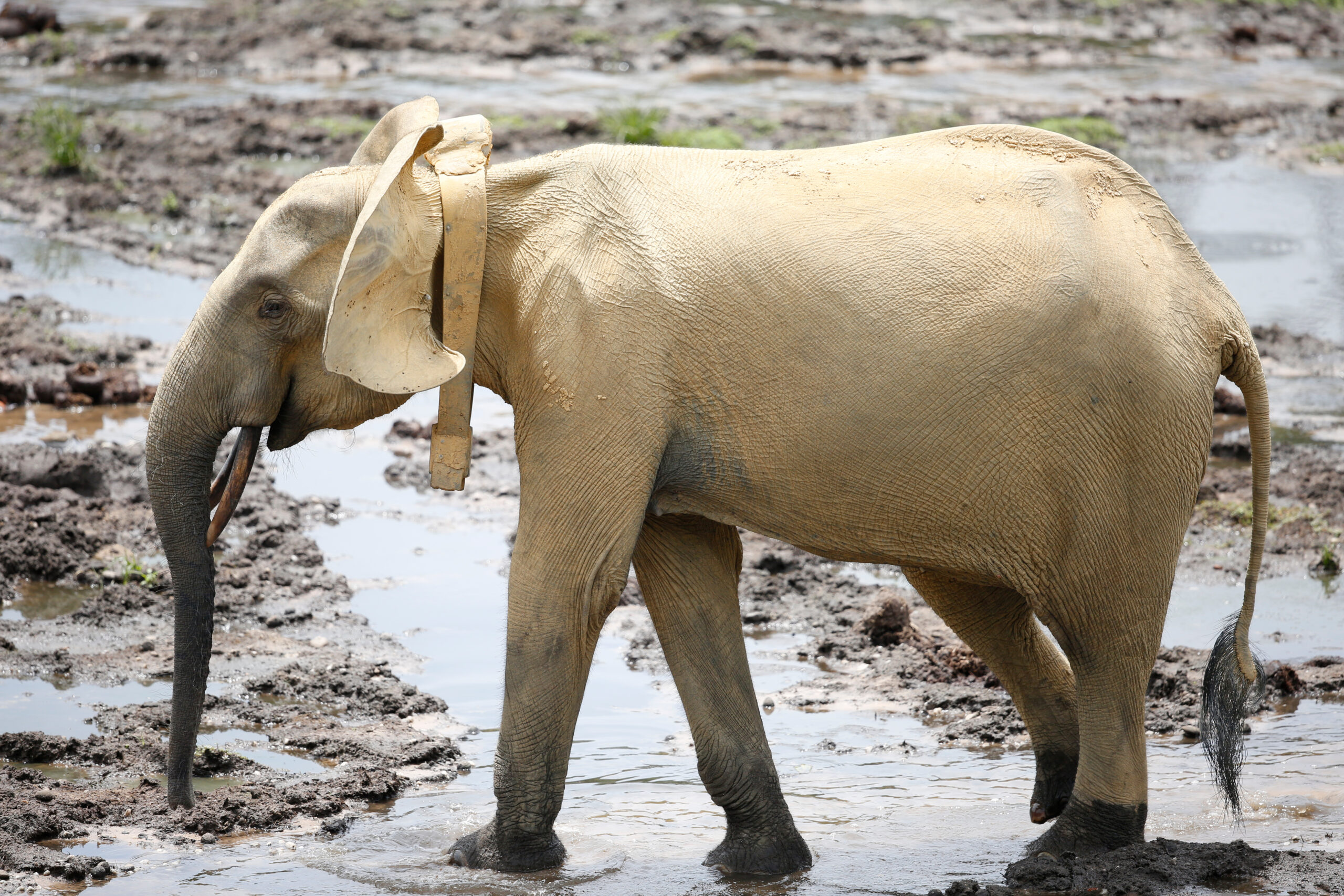
Sound recordings in the forest: The Elephant Listening Project
Sound recordings
Research teams from the Elephant Listening Project have installed acoustic recording devices in the Dzanga-Sangha protected area complex, covering almost 1,200 square kilometers. The devices record the sounds of elephants and gunshots from poachers. The recording devices of the Elephant Listening Project systematically record rainforest sounds to determine elephants’ location and preferred areas – in order to be able to better protect them. Changes in their vocalization behaviour, for example in the presence of poachers, can also be recorded with the help of bioacoustic research.


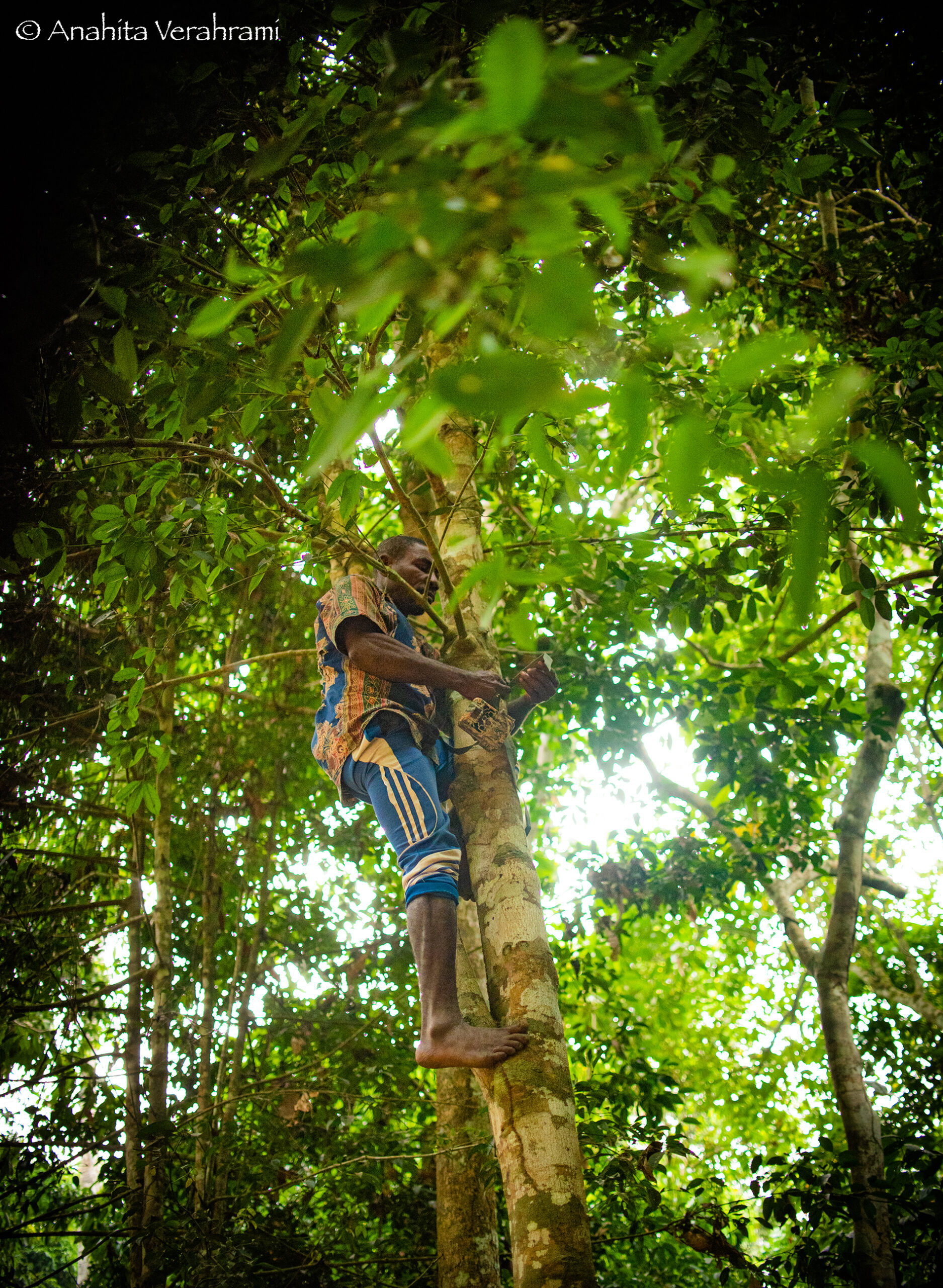
Acoustic tracking of poaching
Acoustic tracking
The scientists report their data at regular intervals to the protected area administration in Dzanga-Sangha. Of almost greater interest than the findings on elephants are the findings on poaching: recorded shots and other man-made noises are systematically evaluated in order to better predict illegal hunting in the future and to better plan anti-poaching patrols.

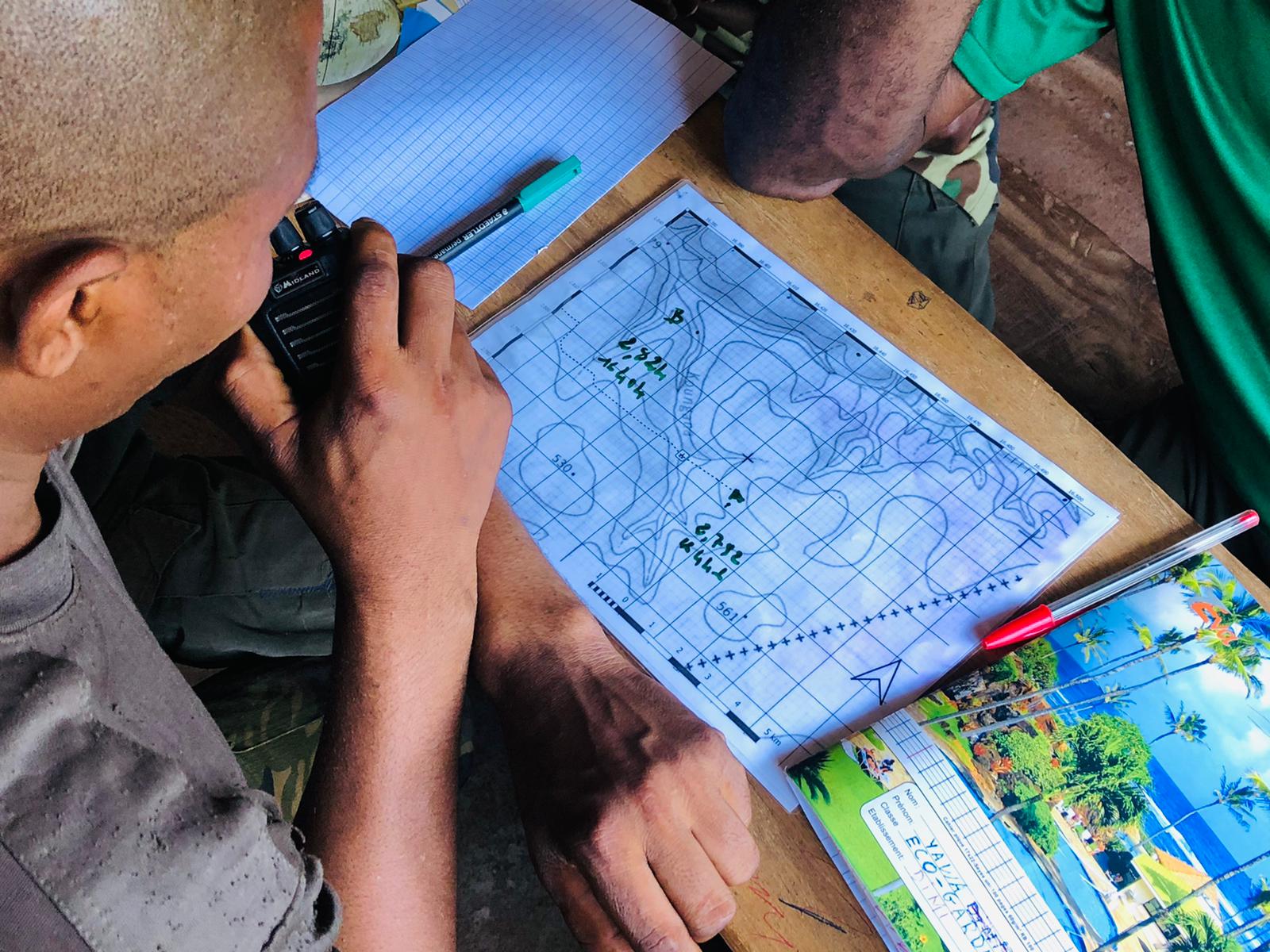
Who is behind the Elephant Listening Project?
Who is behind
Elephant Listening means something like “listening to the elephants”. The Elephant Listening Project is a research project of the K. Lisa Yang Center for Bioacoustics in Conservation at Cornell University Ithaca. The WWF is an important partner of the project, has been active in Dzanga-Sangha for a very long time and works together with the researchers on site.

What did he say? – Learn the language of elephants
What did he say?
The research team in Dzanga-Sangha not only monitors the elephants, they also want to understand them better. At the Dzanga Bai, a large, natural forest clearing, they observe their behaviour, associate it with the various elephant sounds and create a kind of dictionary: a database where the sounds are assigned to categories. The elephant language is extremely complex and science is still in its infancy. For a long time, it was not even known that elephants communicate most of the time with sounds that we humans cannot hear.
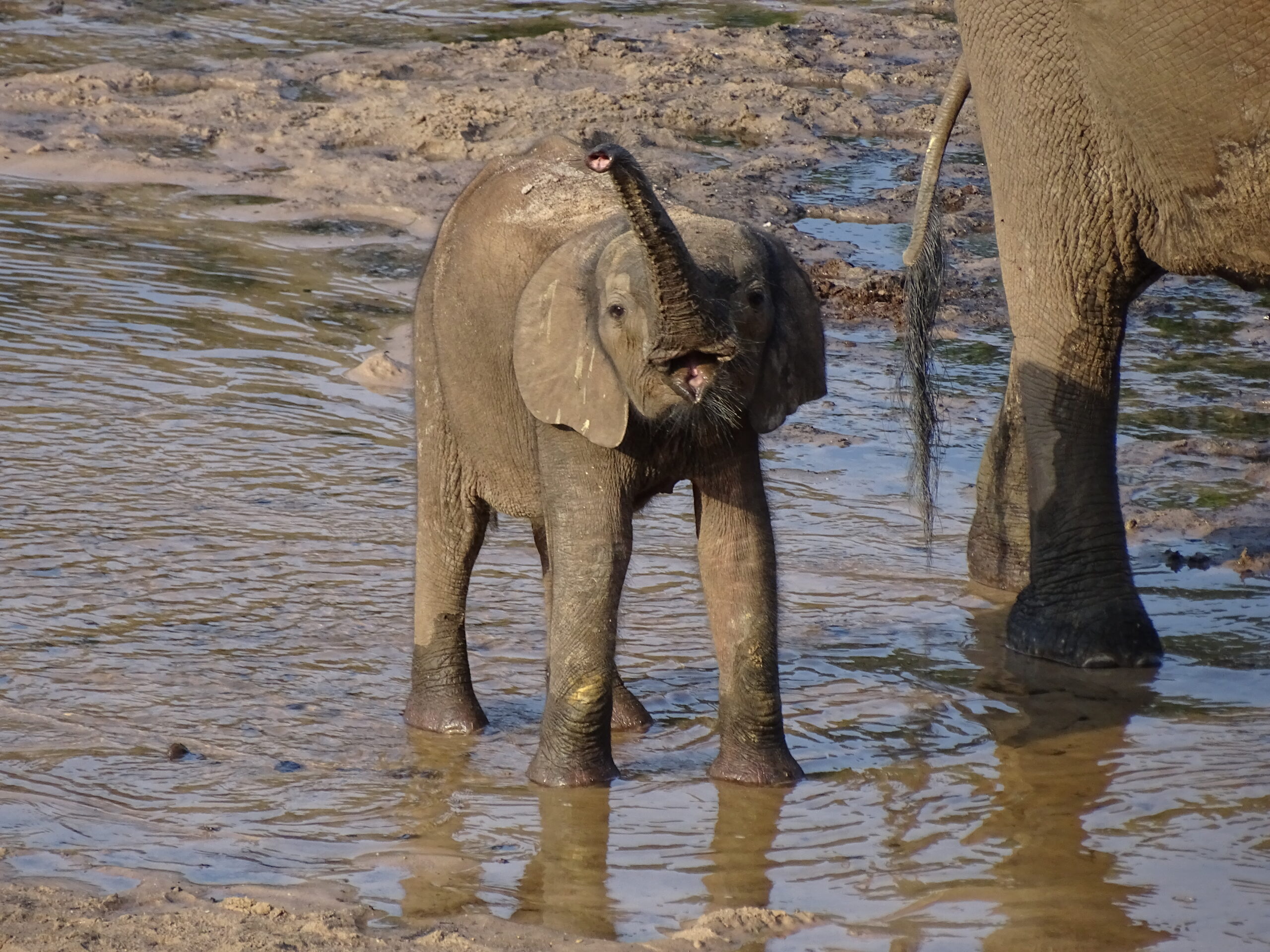
Discovery: Elephant language with depth
Discovery: Elephant language
For the most part, elephants communicate via sounds close to the infrasound range, which are below the human hearing limit. Bioacoustic researcher Katy Payne, founder of the Elephant Listening Project, discovered this in a zoo in 1984. Standing in front of the elephant enclosure, she perceived vibrations that she could not explain. Today, the researchers in Dzanga-Sangha make the infrasound sounds visible in the form of so-called spectrograms. A spectrogram is the pictorial representation of frequencies. If you take a closer look at them, it becomes clear how complex this communication is.

Elephants are highly social creatures
Elephants are highly social
The forest elephants use their low-frequency calls not only to communicate with their group over longer distances, but also to shape their interactions in many different contexts. Elephants are very social, highly intelligent creatures with strong family ties. Understanding and demonstrating this is another goal of the project.

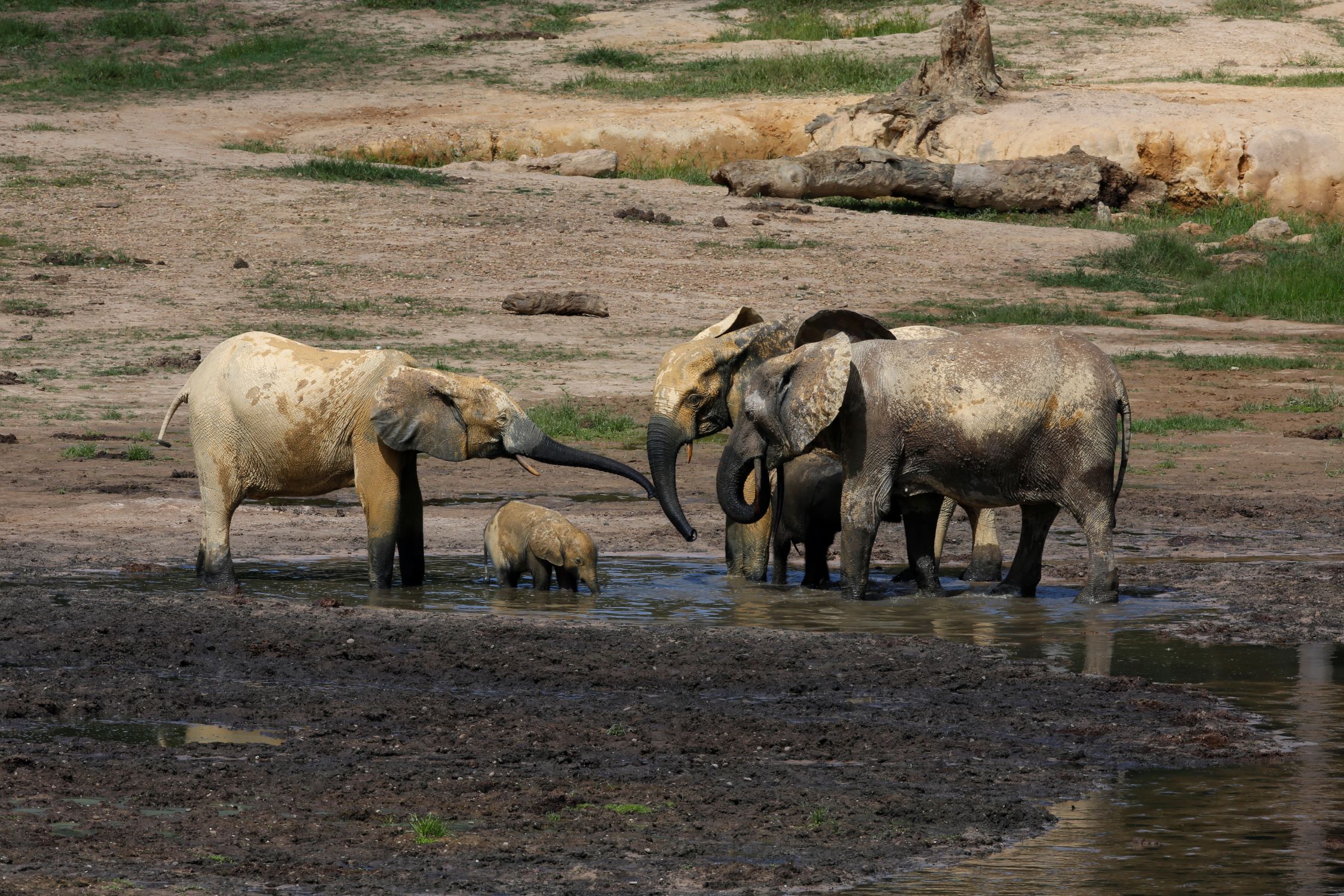
Learning to understand means learning to protect
Learning to understand
Those who understand elephant language can better judge and prove how much elephants are affected by, for example,deforestation or oil drilling . Knowing where and when the forest elephants prefer to be can protect them from poaching. The Elephant Listening Project is not only active in Dzanga-Sangha, but also in other national parks. Far too little is known about these sensitive pachyderms, and their hidden way of life makes it difficult to research them. But we need the forest elephants on our planet. They ensure healthy rainforests, distribute plant seeds on their migrations and even promote better carbon storage through their feeding behaviour.

